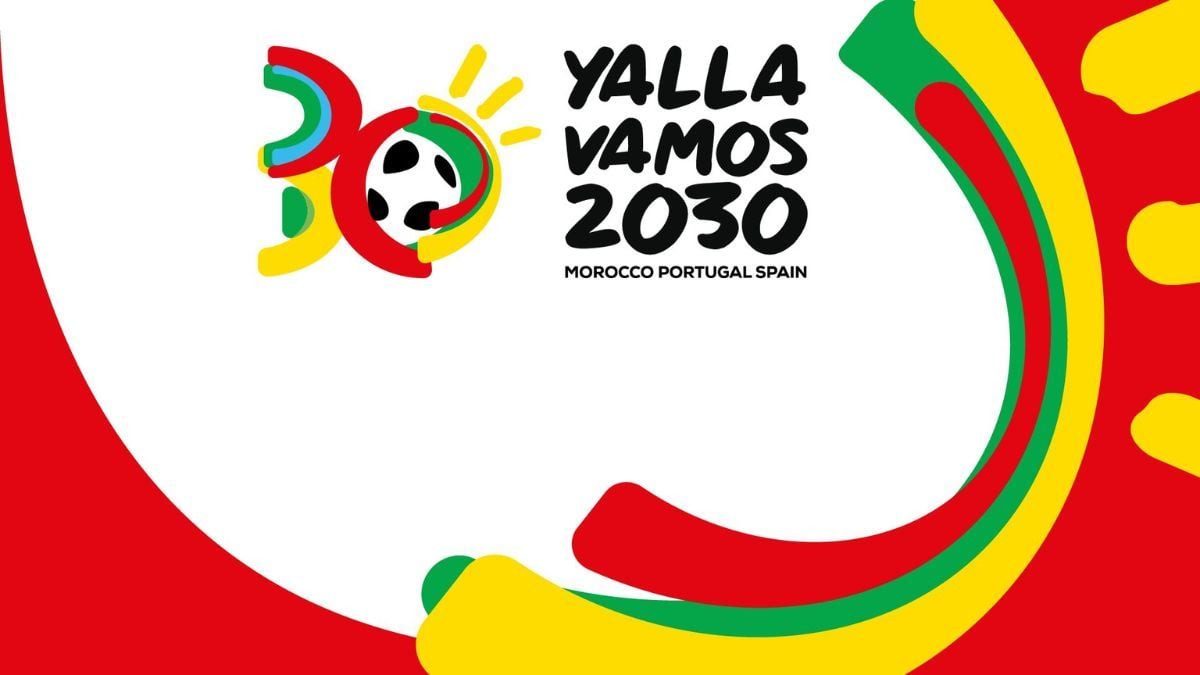
THE 1ST WORLD CUP ORGANIZED ON TWO CONTINENTS!
OFFICIAL: Spain, Portugal and Morocco, ratified by FIFA as hosts of the 2030 World Cup
Published:11/12/2024 - 19:29h
Updated:11/12/2024 - 21:56h
It's now official: Spain will once again host a new World Cup, this time in 2030, and it will do so hand in hand with Portugal and Morocco, within the framework of a historic event
Spain is celebrating, as this Wednesday, December 11, it was confirmed through an Extraordinary Congress of FIFA presented from Zurich (Switzerland), the awarding of the 2030 World Cup. This tournament will be hosted by Spain, which will welcome it 48 years after its last organization (1982), in collaboration with Portugal and Morocco. This event is also special because it coincides with the centenary of this competition, which had its first tournament in Uruguay in 1930.
The decision was received during an online event held at the Ciudad del Fútbol de Las Rozas, which was attended by authorities from different federations of the bids from Morocco, Portugal, and Spain. The Minister of Education, Vocational Training and Sports, and Government Spokesperson, Pilar Alegría, and Ángel Víctor Torres Pérez, Minister of Territorial Policy and Democratic Memory, also attended. Representatives from teams were present, including Emilio Butragueño, director of institutional relations for Real Madrid.
Likewise, authorities from various regional institutions of the territories involved in the 2030 World Cup bid were also present, including the president of the managing board of the Royal Spanish Football Federation (RFEF), María Ángeles García Chaves, 'Yaye'.
The 2030 World Cup will also be held in South America
These three nations have prevailed over three other countries that had offered their bids to host this event: Uruguay, Argentina, and Paraguay. These nations sought to appeal to the return of this competition to where it all began, in the land of the Charrúas. However, this could not be realized.
Nevertheless, not all is lost for these three countries, as they know that they will at least host one match for the 2030 World Cup. The Centenario Stadium in Montevideo, Uruguay, will be the venue responsible for hosting the first match of this grand event. Additionally, there will be a match in Argentina, to be held at the Monumental in Buenos Aires, and another in Paraguay, which will debut at the Osvaldo Domínguez Dibb Stadium. These matches are how FIFA found a way to commemorate the centenary of the competition.
Which stadiums will host the 2030 World Cup?
In this regard, while all the venues available for this tournament in Spain, Morocco, and Portugal are known, it is still unclear where the World Cup final will be held. At the moment, three stadiums are vying to host these events: the Santiago Bernabéu, home of Real Madrid; the Spotify Camp Nou, home of Barcelona; and the Grand Hassan II Stadium in Casablanca, a venue that has not yet begun construction. Since this decision is apparently not expected to be revealed yet, it is anticipated that it will be made in 2026.
In Spain:
- Santiago Bernabéu (Madrid). Capacity in 2030: 78,297.
- Camp Nou (Barcelona). Capacity in 2030: 103,447.
- Metropolitano (Madrid). Capacity in 2030: 70,650.
- La Cartuja (Sevilla). Capacity in 2030: 71,000.
- RCDE Stadium (Barcelona). Capacity in 2030: 40,259.
- San Mamés (Bilbao). Capacity in 2030: 53,633.
- Estadio Gran Canaria (Las Palmas). Capacity in 2030: 44,500.
- La Rosaleda (Málaga). Capacity in 2030: 45,000.
- Anoeta (San Sebastián). Capacity in 2030: 42,300.
- Riazor (La Coruña). Capacity in 2030: 48,015.
- Nuevo Romareda (Zaragoza). Capacity in 2030: 43,144.
In Morocco:
- Grand Hassan II Stadium (Casablanca). Capacity in 2030: 115,000.
- Prince Moulay Abdellah (Rabat). Capacity in 2030: 68,700.
- Grand Stadium of Tangier. Capacity in 2030: 75,600.
- Grand Agadir Stadium. Capacity in 2030: 46,000.
- Grand Fès Stadium. Capacity in 2030: 55
In Portugal:
- Estadio Da Luz (Lisbon). Capacity in 2030: 65,209.
- Estadio do Dragao (Porto). Capacity in 2030: 51,075.
- Estadio José Alvalade (Lisbon). Capacity in 2030: 50,103.







